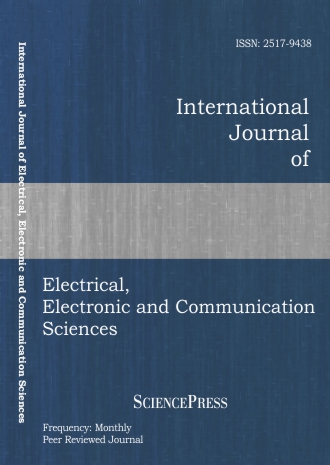
Scholarly
Volume:14, Issue: 5, 2020 Page No: 106 - 109
International Journal of Electrical, Electronic and Communication Sciences
ISSN: 2517-9438
Conductivity and Selection of Copper Clad Steel Wires for Grounding Applications
Copper clad steel wire (CCS) is primarily used for grounding applications to reduce the high incidence of copper ground conductor theft in electrical installations. The cross sectional area of the CCS is selected by relating the diameter equivalence to a copper conductor. The main difficulty is how to use a simple analytical relation to determine the right conductivity of CCS for a particular application. The use of Eddy-Current instrument for measuring conductivity is known but in most cases, the instrument is not readily available. The paper presents a simplified approach on how to size and determine CCS conductivity for a given application.